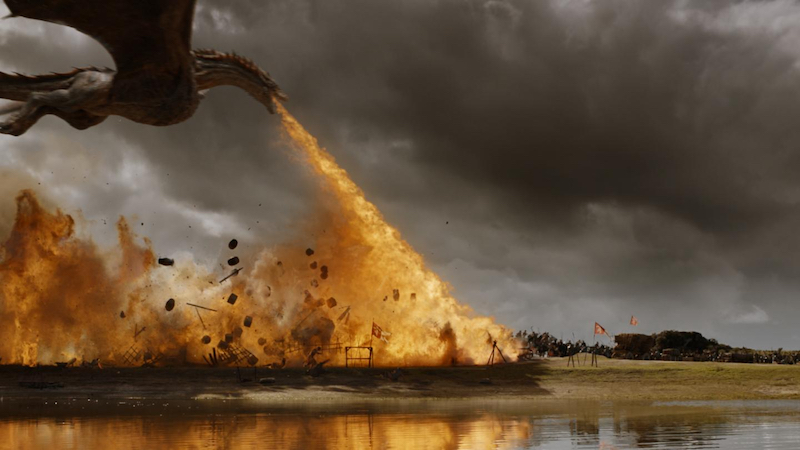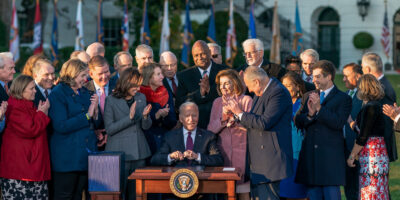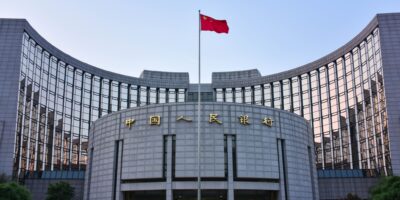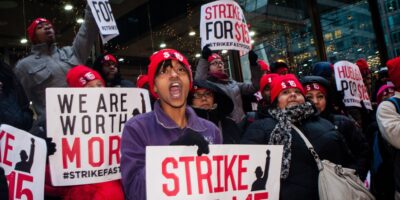Trade Wars: A Real-Life Game of Thrones
It’s ironic, to say the least, that the Chinese government chose to deny a national broadcast of “Game of Thrones”’ last installment recently, signaling to both its own people and to the United States that the ongoing trade war is far from over. After all, Mr. Trump’s much cherished trade wars are a game where one powerful leader confronts another—a game of thrones, so to speak, where skirmishes and battles occur and the innocent become victims in an inescapable field of combat.
Unlike marvelously created made-for-television episodes where someone usually emerges victorious, in trade wars, everyone loses.
Those Chinese who looked forward to seeing the final episode may have instead seen some of the last few weeks’ televised propaganda and concluded that the United States is not to be trusted. At the same time, Americans—Kansas grain farmers who previously shipped crops to China; South Carolina auto workers who built China-bound BMWs, Volvos, and Hondas; or ordinary U.S. Walmart shoppers paying slightly higher prices—are not doing quite as well as they were before Mr. Trump’s game of thrones started.
Of course, we’ve all heard the justifications: China has not played by the rules, its enforcement of intellectual property rights leaves much to be desired, and its government-owned enterprises are subsidized unfairly. But we must also recognize that the “victimized” American businesses who still chose to do business in China did so voluntarily. In spite of its well-known imperfections, they saw China’s marketplace as attractive and profitable.
Of course, it would be great if we could compel China to improve its practices without subjecting American workers and consumers to friendly fire. And we might all wish to call Camelot home. The situation is much like when a landowner buys a fine home at a discount next to an industrial plant and then brings suit to force a clean-up. One cannot voluntarily come to the nuisance and then expect a court of law to provide a windfall. But it doesn’t hurt to try.
Those who think that the ongoing trade wars with China and other countries are making America great should look closely at what is happening to U.S. industrial production, which has fallen for three of the last four months. They might consider falling retail sales. Or they might look at real-time GDP growth estimates from the Federal Reserve Banks of New York and Atlanta, which are now registering less that 2.0 percent in real terms.
For a wider-ranging perspective, they might consider the Federal Reserve Bank of Philadelphia’s monthly estimates of future growth for each of the 50 states. These show strong state economic growth generally disappearing, and forecast state recessions in a few places.
If we are engaged in a game of thrones, the data suggest we are losing.
Politicians are savvy. They have all of this information. So why would they deliberately choose policies that could cause damage to Americans’ economic prospects in an election year? Why would those responsible for securing the wellbeing of all Americans choose to favor specific special interest groups such as organized labor in the industrial north instead of working to secure prosperity for all Americans?
There are at least two answers to these questions: First, perhaps the savvy people making these political choices are far better informed about the outcome of their game of thrones than the rest of us mortals. Based on the cards they are holding, they fully expect to win and make Americans stronger in the long-run, even though we are weaker in the immediate future.
Alternately, perhaps politicians who would risk a recession over a trade war, all while preparing to run for office, are fundamentally risk takers. After all, these are competitive people drawn to a high-stakes profession. They might prefer playing a game of thrones, seeking a resounding victory when it is not at all clear that they will win. If they succeed, the victory may taste sweeter, but in the meantime, the common folk are made poorer.











